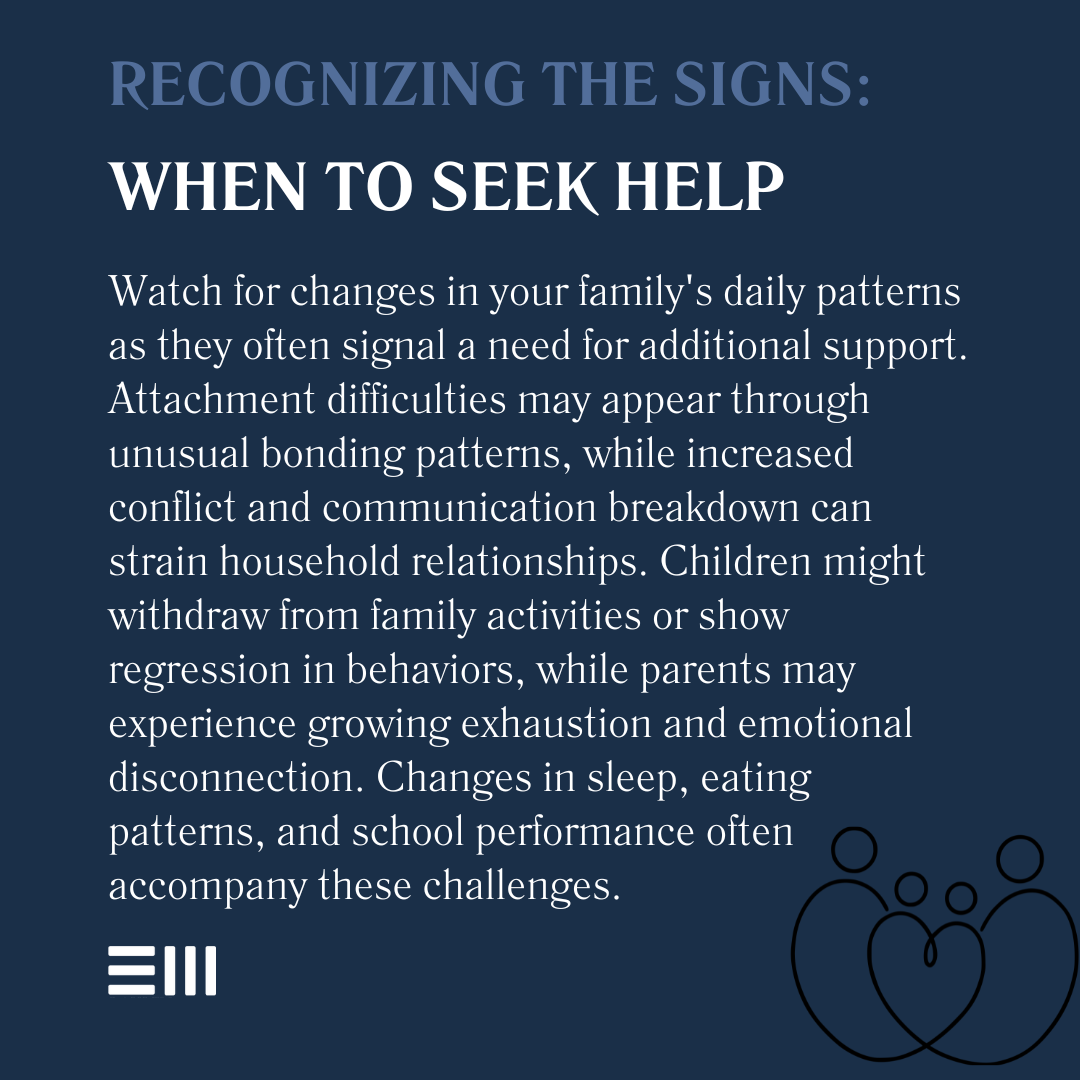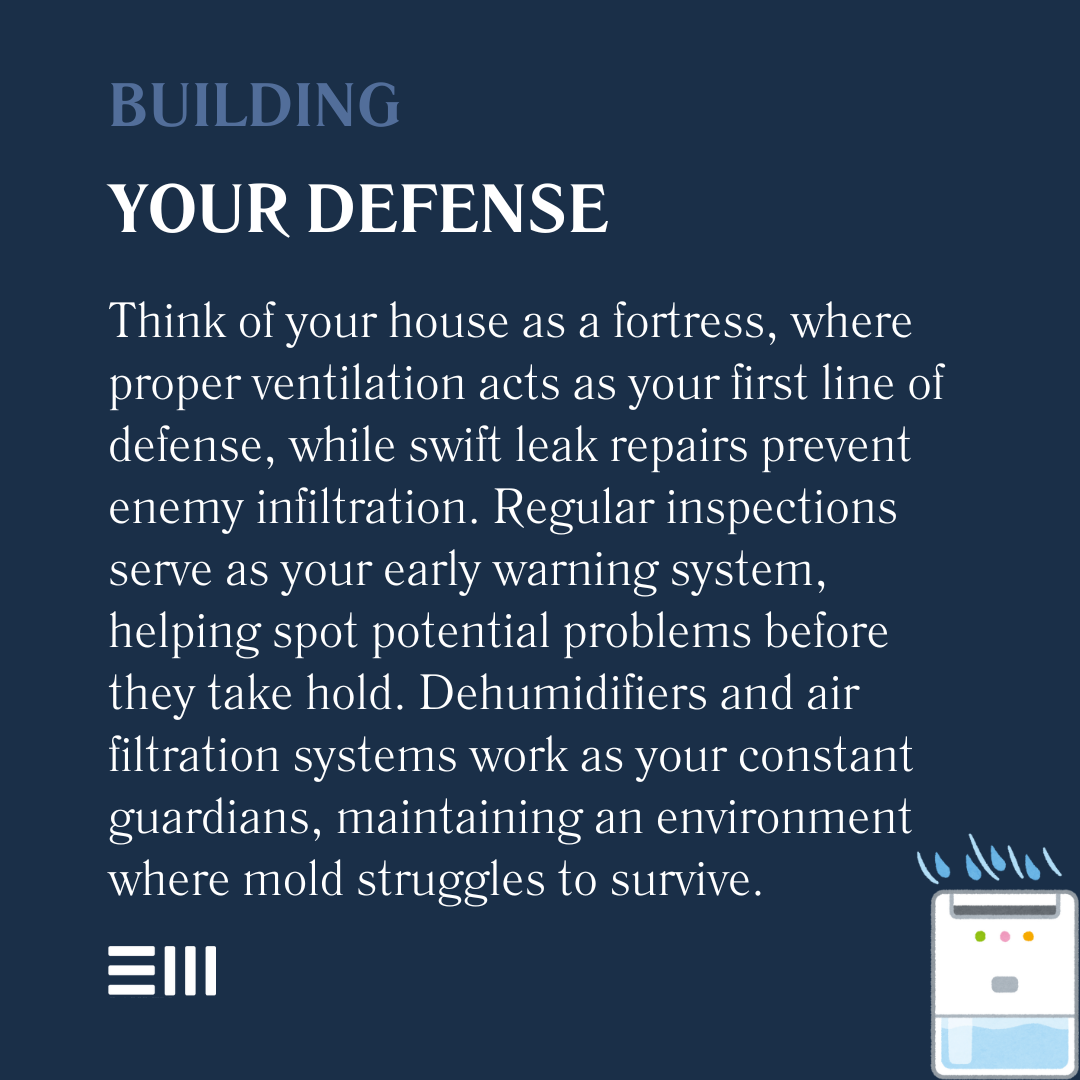Behind closed doors, families facing adoption challenges often feel alone in their struggle. Yet in living rooms across Alabama, parents and children navigate these delicate transitions together, finding strength in understanding and professional support.
While each family's story is unique, the path forward begins with compassion, knowledge, and guidance from those who have walked this road before.
Through understanding and proper support, many families find their way to healing and renewed connection.
Understanding Adoption Disruption
Adoption disruption represents one of the most challenging experiences families can face.
This complex situation affects everyone involved - adoptive parents, children, and extended family members—each bringing their own emotions and needs to the process.
Understanding the nature of disruption helps families approach the situation with greater awareness and compassion.
Common factors that may contribute to adoption disruption include:
- Unexpected attachment challenges stemming from early trauma or institutional care;
- Unaddressed trauma responses that manifest in challenging behaviors;
- Limited pre-adoption preparation or incomplete background information;
- Insufficient post-placement support from agencies or community resources;
- Complex medical or behavioral needs that exceed family resources;
- Family dynamic changes such as divorce, illness, or loss;
- Resource and support limitations including financial strain or limited access to services;
- Cultural adjustment difficulties or language barriers;
- Educational challenges requiring specialized interventions; and
- Mental health concerns affecting family members.
Recognizing these factors early helps families access appropriate support and resources when needed most.
Many families find that understanding the root causes helps reduce shame and isolation while opening doors to effective solutions.
Signs and Early Intervention
Early recognition of potential disruption signals allows families to seek help before challenges become overwhelming.
Understanding these indicators provides opportunities for positive intervention and support, often preventing complete disruption through timely assistance.
Key warning signs to watch for include:
- Persistent attachment difficulties manifesting in unusual bonding patterns;
- Escalating behavioral challenges at home or school;
- Parental feelings of disconnection or emotional withdrawal;
- Family communication breakdown leading to increased conflict;
- Increased household stress affecting daily routines;
- Child regression or withdrawal from family activities;
- Caregiver exhaustion leading to compassion fatigue;
- Support system strain impacting extended family relationships;
- Educational difficulties requiring intensive intervention;
- Sleep disruptions affecting family functioning;
- Changes in eating patterns or other regulatory behaviors;
- Isolation from community or social supports; and
- Financial strain from unexpected therapeutic needs.
Identifying these signs early creates space for intervention and healing, often preventing further escalation of challenges. Professional support at this stage can make a significant difference in outcomes.
Professional Support Options
Professional support plays a vital role in navigating adoption disruption. Various specialists and services exist to help families through this challenging time, each offering unique expertise and perspectives.
Available support services include:
- Adoption-competent therapists trained in attachment and trauma;
- Family counseling specialists with adoption experience;
- Attachment experts specializing in adoption challenges;
- Respite care providers offering temporary relief;
- Support groups for parents and children;
- Educational advocates familiar with adoption needs;
- Medical specialists understanding adoption-related health issues;
- Legal advisors with adoption expertise;
- Cultural consultants for international adoptions;
- Occupational therapists addressing sensory needs;
- Speech therapists supporting communication;
- Behavioral specialists developing intervention plans; and
- Crisis intervention specialists for immediate support.
Each type of support offers unique perspectives and tools for families navigating disruption challenges. The key is finding the right combination of services for your family's specific needs.
Creating a Support Plan
Developing a comprehensive support plan helps families navigate disruption with clarity and purpose. This structured approach ensures all family members receive the necessary support and resources while maintaining focus on achievable goals.
Essential elements of a support plan include:
- Regular therapeutic sessions with adoption-competent providers;
- Family communication strategies tailored to age and ability;
- Self-care practices for parents and children;
- Respite care scheduling to prevent burnout;
- Educational support coordination with schools;
- Medical care management and coordination;
- Legal consultation when needed;
- Support group participation opportunities;
- Crisis intervention protocols;
- Financial planning for services;
- Documentation systems;
- Progress evaluation methods;
- Cultural connection activities; and
- Sibling support strategies.
A well-crafted support plan provides stability during uncertain times and helps guide families toward positive outcomes.
Regular review and adjustment of the plan ensures it continues to meet family needs.
Legal and Ethical Considerations
Understanding the legal and ethical aspects of adoption disruption helps families make informed decisions while protecting everyone's rights and well-being.
This knowledge provides a framework for navigating complex decisions with integrity.
Important considerations include:
- Legal requirements and processes specific to Alabama;
- Child welfare regulations governing placement changes;
- Adoption agency policies and responsibilities;
- Birth family rights and notifications;
- Documentation needs for all proceedings;
- Financial obligations and responsibilities;
- Support service contracts and commitments;
- Confidentiality requirements and privacy laws;
- Interstate compact considerations;
- Post-disruption contact agreements;
- Medical record transfers;
- Educational record management;
- Insurance and benefits considerations; and
- Future adoption implications.
Proper attention to these aspects ensures ethical handling of disruption situations while protecting all parties involved.
Frequently Asked Questions About Adoption Disruptions in Alabama
Families facing adoption disruption often share common questions and concerns.
Here are comprehensive answers to help guide you through this challenging time.
What Are the First Steps When Considering Disruption?
Begin by contacting your adoption agency or attorney to discuss your situation. They can connect you with appropriate resources and guide you through initial steps while ensuring legal compliance. Early intervention often opens more options for support and resolution.
How Do We Tell Extended Family Members?
Open communication with family requires careful planning. Consider working with a counselor to develop a communication strategy that maintains dignity and respect for all involved.
Remember that family members may need time to process and may benefit from their own support resources.
What Support Services Are Available in Alabama?
Alabama offers various support services, including crisis intervention, counseling, respite care, and support groups. Many services provide sliding scale fees and insurance options.
Local agencies maintain networks of adoption-competent providers and can help coordinate comprehensive care.
Can We Maintain Contact After Disruption?
Each situation is unique. Professional guidance helps families determine appropriate boundaries and contact arrangements that serve everyone's best interests.
Some families maintain connections through letters or supervised visits, while others find different arrangements more suitable.
How Do We Support Our Other Children?
Siblings need special attention during disruption. Professional counselors can help parents guide children through this transition while maintaining family stability. Age-appropriate communication and individual support help siblings process changes and maintain security.
What Financial Resources Are Available?
Various financial resources may help cover support services, including adoption subsidies, insurance coverage, and specialized grants. Work with your agency to explore all available options for services that need funding.
Finding Your Path Forward
Your family deserves compassionate, experienced support during this challenging journey. Our team of adoption specialists understands the complexities of disruption and provides comprehensive guidance through every step, ensuring you never have to face these challenges alone.
Contact us for confidential support.
Let us help you find clarity and support during this difficult time. Together, we can explore options and create a path forward that honors everyone's needs.


